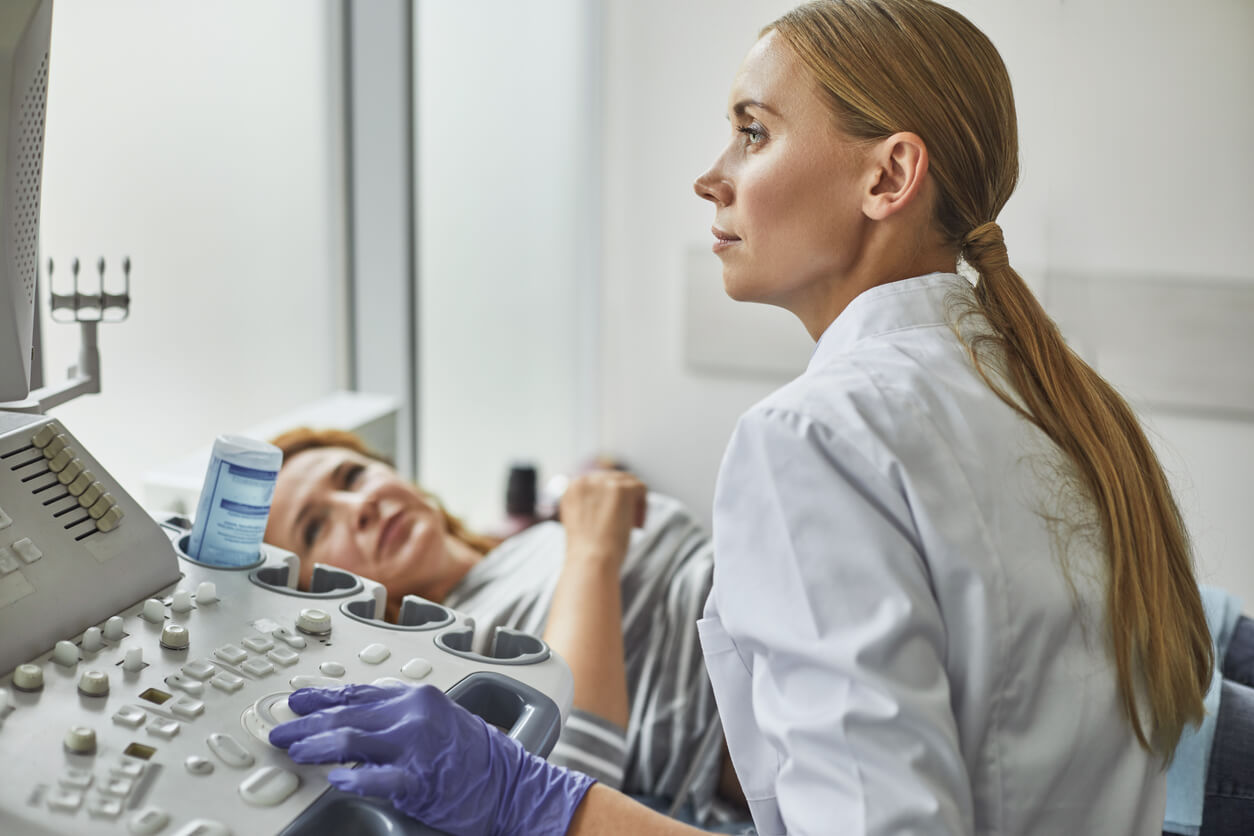If you’ve reached the point where you’re typing “gynecologist for seniors near me” into your preferred search engine, you probably have a couple of other questions too.
Do I need to see a gynecologist after menopause? At what age do you stop going to the gynecologist? At what age can you stop having pelvic exams? And how often do you need a pap smear after 50? It’s great that you’re asking these questions because prioritizing your health is a top priority, especially in your older years.
You’ve come to the right place. Below, we answer your most common questions and provide a bit of insight so you can feel better informed and more in control over your health and your body.
Do I Need to See a Gynecologist After Menopause?
As you age, you’ll notice several changes, beginning with reduced periods. This is something you should look out for after the age of 40. This is generally when female hormones begin changing, which results in several uncomfortable symptoms, including hot flashes, which usually appear during perimenopause. If you have gone a year without a menstrual period, you have likely reached the menopausal phase.
Your body will continue to change after menopause, and many women experience symptoms that require gynecological care. For example, if you experience irritation of the vagina and vulva, sexual intercourse may become painful. Some women experience pelvic organ prolapse when the muscles that support their bladder, rectum, and uterus become significantly weaker. You may also experience urinary incontinence, which requires care as well. At the end of the day, maintaining a solid relationship with your gynecologist can help you keep good health after menopause.
So, when you’re asking yourself, “do I need to see a gynecologist after menopause?” the answer is yes. You must know the available answers when you search “gynecologist for seniors near me.” However, so long as your exams have been healthy in the preceding years, you will not have to visit your doctor as often as you did pre-menopause.

What Age Do You Stop Going to the Gynecologist?
Throughout your life, your needs when visiting a gynecologist shift. Without speaking regularly with your doctor, you may begin to wonder what you need as you get older. Before menopause, you may have a regular routine, but your needs will start to change as your body changes. Every woman is different; however, usually, the age when a woman’s body begins to change is mid-forties. You may notice irregular periods become the norm, and you may also need to consider that certain conditions require gynecological care.
So, when you ask, “what age do you stop going to the gynecologist?” The best you can do is keep the channels of communication open with your doctor. Your personal needs will change throughout the different phases of your life – for this reason, you must regularly connect with your doctor to determine what course of action is best for your overall health. A once per year visit is a good standard, with more visits being possible, depending on what’s happening with your body.
At What Age Can You Stop Having Pelvic Exams?
Yearly visits to your gynecologist should be a regular part of your health regimen. As a woman, you require several screenings on a regular basis, including pelvic exams. A pelvic exam covers everything from your uterus to your bladder to your vagina. Pelvic exams are especially important if you’ve had previous issues or a health pattern noticeable in your family history. Along with your regular dental and health exams with your dentist and general practitioner, you should also connect with your gynecologist for pelvic exams. However, as you get older, you may not require a pelvic exam the way you do when you’re in your child-bearing years.
So, at what age can you stop having pelvic exams? For women under 30 years of age, annual screenings are vital for health. Past the age of 30, women can generally reduce their gynecological visits to every three years. However, this is dependent on your particular circumstances and should be determined with your doctor. Pelvic exams are an essential part of your health regimen even post-menopause, as they are a preventative measure that keeps you informed of your body’s health. The risk for cancer increases as you age. Therefore it’s vital you connect with your doctor to determine the frequency of your visits.
How Often Do You Need a Pap Smear After 50?
Women who have reached age 50 do still require pap smears, though not with annual frequency. Of course, this assumes you have regularly received normal pap smear results and have not had any history of pre-cancerous results. Women who have received abnormal results should connect with their gynecologists to determine the best course of action for their particular care. Women who have a history of normal pap smear results can generally extend the period between pap smears to three years.
So, how often do you need a pap smear after 50? For women who have had a complete hysterectomy for non-cancerous conditions, pap smears may not be required any longer. The same is true for women who have reached 70 and have experienced an entire decade of normal pap smear test results. Nevertheless, women should connect with their gynecologists for other tests, including HPV tests, every three to five years. Don’t clear your browser history following your search for a gynecologist for seniors near me. You’ll need the results. For women who have received a precancer diagnosis, regular gynecological screenings should continue for the following 20 years.
What Symptoms Should You Look Out For?
Since gynecology visits are spread out over time, you must stay attuned to your body and contact your doctor if you notice anything unusual. Look out for the following symptoms and reach out to your gynecologist right away if you experience them:
Pain in your pelvic area.
Though pelvic pain is not directly associated with cervical cancer, it can be a sign that abnormal changes are occurring when it is present. It is best to contact your gynecologist right away to alert them of any pain you notice in this area.
Abnormal vaginal discharge.
If you notice unusual vaginal discharge, either in appearance or smell, a visit to your gynecologist is in order.
Abnormal bleeding.
When you’re still menstruating, regular bleeding is normal. However, post-menopause, which on average starts at age 51, you should immediately address any kind of vaginal bleeding with your doctor.
Schedule Your Next Visit at Our Women’s Wellness Office in South Florida
What is something new you learned through this article? Comment below to let us know!
When you’re looking for a comfortable environment that tends to your personal and intimate care, request an appointment at our office. We offer a holistic approach to your gynecological care, including yoga, meditation, relaxation, and exercise techniques. Pelvic exams and pap smears may not be the most comfortable, but when you’re surrounded by a team whose only goal is your optimal health, you can rest easy knowing you’re doing your best to care for yourself and your body.


